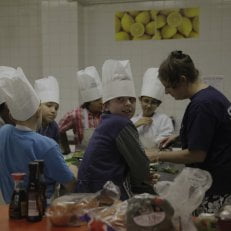Volunteer Week: volunteers are vital for church fundraising
For 2022 volunteer week, we take a look at church fundraising and churches’ reliance on volunteers for fundraising projects. Volunteers play a vital role in church life and can make all the difference to your fundraising project, large or small.
Three things to consider so volunteers can support your church fundraising:
- If your church is fortunate enough to have enthusiastic and committed members involve them in the development of your project and fundraising plans. Whether it’s the Project Team, PCC or a fundraising sub-group, don’t forget to think about fundraising from the start. Preparation is the key to success and takes time. Research and build lists of people to approach and where there are known contacts. As well as the congregation, consider the local community, appropriate trusts, local companies etc.
- Build a team of church volunteers to secure gifts from the congregation. People tend to respond more generously, when they are approached face-to-face, with clear presentation of plans, and a means of responding; a campaign to secure regular gifts, given over a number of years, can be really effective. For a capital campaign, these gifts may be in addition to existing support for the church’s day to day work. As well as establishing momentum to your fundraising, this demonstrates local support which is vital when seeking gifts from trusts and individuals elsewhere.
- Identify and recruit fundraising leaders from the congregation, community or local businesses. This volunteer team will give money and status, and help lead and make approaches to others. The right volunteers – active, engaged, influential – can widen your prospect pool, including to non-church supporters. If briefed and supported properly, they can make personal approaches that will increase the likelihood of success and gift levels.
Of course, as with all volunteers, careful coordination and support is essential for your fundraising volunteers. Don’t forget to:
- Thank them and keep them informed on fundraising progress. Ambassadors need to feel valued.
- Be clear about what they’ve been asked to do, who to ask for assistance/information and the importance of reporting back so you have a central record of results and next steps
- Ensure they know where and when they fit in the fundraising plan. For example, organizing bake sale or community raffle can help raise awareness and funds, but needs to come at the right time, after the early approaches for larger gifts.
- Get to know the volunteer’s motivation for giving their time to the church, and build some ‘pay back’ related to that motivation. For example, maybe they have a personal interest in the church’s heritage, or have a passion about work with young people.





